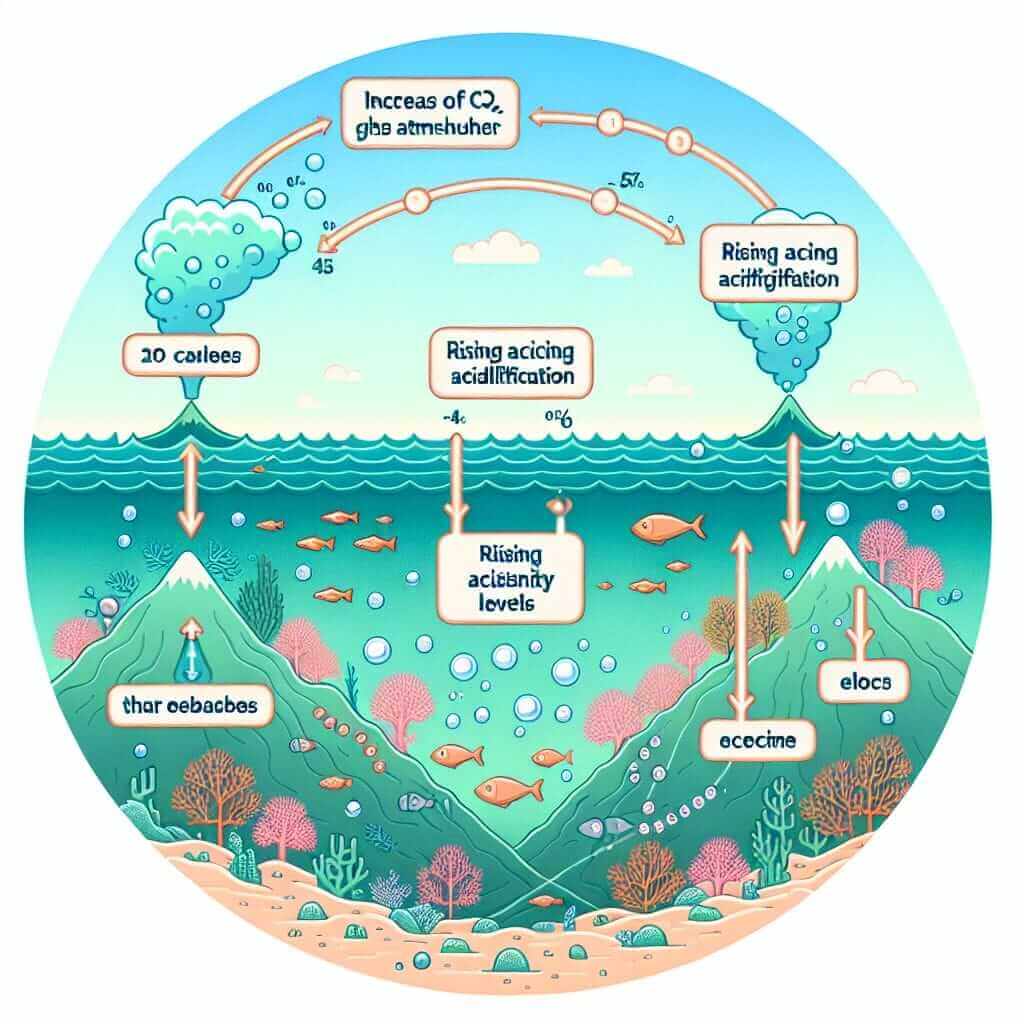The IELTS Reading section tests a candidate’s ability to understand and process detailed information from various texts. One commonly appearing theme is the impact of environmental changes on different systems, such as fisheries. Given the growing urgency of climate change, the topic “Effects of climate change on fisheries” is highly relevant and has been featured in several IELTS exams. Understanding this subject not only prepares candidates for potential reading passages but also enriches their knowledge on a critical global issue.
Based on data analysis of past IELTS exams, the frequency of environmental topics has increased, deeming this subject matter worth predicting to appear in future tests. This article aims to provide an in-depth reading passage, followed by a comprehensive set of questions and detailed answers, to facilitate thorough practice for IELTS aspirants.
Practice Reading Passage
Effects of Climate Change on Fisheries
Introduction
Climate change is dramatically altering the world’s ecosystems, and fisheries are no exception. Oceans are experiencing significant transformations due to rising temperatures, ocean acidification, sea-level rise, and changing weather patterns. These changes are having profound effects on global fish populations, which in turn impact the communities and economies dependent on them.
Rising Sea Temperatures
Fish are highly sensitive to temperature changes. Even minor shifts can influence their metabolism, growth rates, reproductive cycles, and migration patterns. Warm-water species are moving towards the poles, while cold-water species are facing habitat reduction. This redistribution affects the stability of marine ecosystems and the fishing industries that rely on them.
Ocean Acidification
The increase in atmospheric CO2 levels has led to higher concentrations of carbonic acid in oceans, a process known as ocean acidification. This phenomenon compromises the structural integrity of shellfish and coral reefs, both vital to marine biodiversity. As foundational species struggle, the entire food web is disrupted, leading to cascading effects on fish populations.

Sea-Level Rise
Rising sea levels impact coastal habitats, including critical spawning and nursery areas for many fish species. Wetlands, mangroves, and estuaries are particularly vulnerable. The loss of these habitats can reduce the reproductive success of commercially important fish species, thereby affecting fisheries’ productivity.
Changing Weather Patterns
Altered weather patterns, such as increased frequency and intensity of storms, can destroy marine habitats and disrupt fishing activities. Stronger storms and altered currents can damage coral reefs, kelp forests, and other critical ecosystems. Additionally, erratic weather conditions can endanger the safety of fisherfolk, affect fishing schedules, and thus, economic stability.
Reading Questions
Questions 1-5
Do the following statements agree with the information given in the passage? Write:
- True if the statement agrees with the information
- False if the statement contradicts the information
- Not Given if there is no information on this
- Fisheries are predominantly affected by ocean acidification alone.
- Warm-water fish species are migrating towards the equator due to temperature increases.
- Sea-level rise benefits coastal habitats by increasing their area.
- Ocean acidification results from higher concentrations of carbonic acid.
- Increasing storm frequency has no impact on fishing activities.
Questions 6-10
Complete the sentences below. Choose NO MORE THAN TWO WORDS from the passage for each answer.
- The increasing _____ is altering the world’s ecosystems profoundly.
- Climate change can influence fish species’ _____.
- Rising atmospheric CO2 causes _____ in oceans.
- Marine habitats such as _____ are crucial for the survival of marine species.
- _____ can damage ecosystems like coral reefs and kelp forests.
Questions 11-13
Answer the questions below with NO MORE THAN THREE WORDS and/or A NUMBER from the passage.
- What process compromises the structural integrity of shellfish and corals?
- Which habitats are vulnerable to rising sea levels aside from estuaries?
- What are distributive effects on marine habitats a result of?
Answer Key and Explanations
Answers
- False
- False
- False
- True
- False
- sea temperatures
- migration patterns
- ocean acidification
- coral reefs
- Stronger storms
- Ocean acidification
- Wetlands, mangroves
- Changing weather patterns
Explanations
- Ocean acidification is not the sole factor affecting fisheries.
- Warm-water fish are moving towards the poles, not the equator.
- Rising sea levels reduce, not increase, coastal habitat areas.
- Higher atmospheric CO2 levels indeed cause ocean acidification.
- Increasing storm frequency affects fishing activities significantly.
Common Mistakes
- Misinterpreting words like “alone” to mean exclusive effects.
- Confusing direction of migration for species adapting to different temperatures.
- Assuming rising sea levels benefit all coastal habitats without considering specific nuances.
Vocabulary
- Metabolism (noun) /məˈtæbəˌlɪzəm/: The chemical processes that occur within a living organism to maintain life.
- Biodiversity (noun) /ˌbaɪoʊdaɪˈvɜrsɪti/: The variety of life in a particular habitat or ecosystem.
- Estuary (noun) /ˈɛstʃuˌɛri/: The tidal mouth of a large river, where the tide meets the stream.
- Cascade (verb) /kæsˈkeɪd/: To cause something to occur in a series or sequence.
- Nursery (noun) /ˈnɜrsəri/: A place where plants and animals develop and grow before they are mature.
Grammar Focus
- Passive Voice: Used to emphasize the action rather than the subject performing the action.
- Example: “Wetlands are particularly vulnerable” rather than “Climate change makes wetlands vulnerable.”
- Relative Clauses: Add additional information about a noun without starting a new sentence.
- Example: “Wetlands, which are critical spawning areas, are affected.”
Advice for High IELTS Reading Scores
- Skim and Scan: Quickly skim the passage for the main idea and scan for keywords related to the questions.
- Practice Regularly: Consistently practice with varied reading materials to improve comprehension speed and accuracy.
- Use Context Clues: Rely on context within the passage to deduce the meanings of unfamiliar words or complex sentences.
- Time Management: Allocate specific time segments to each section and stick to them to ensure you complete all parts.